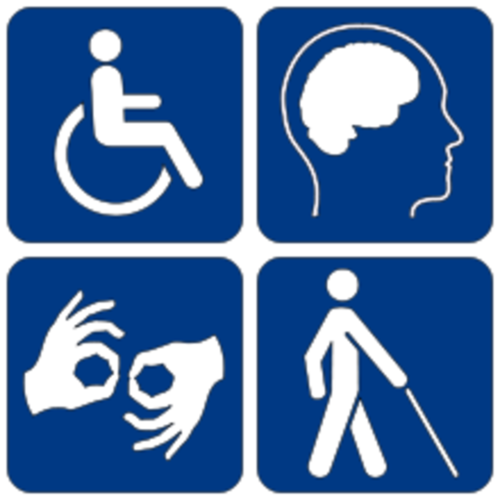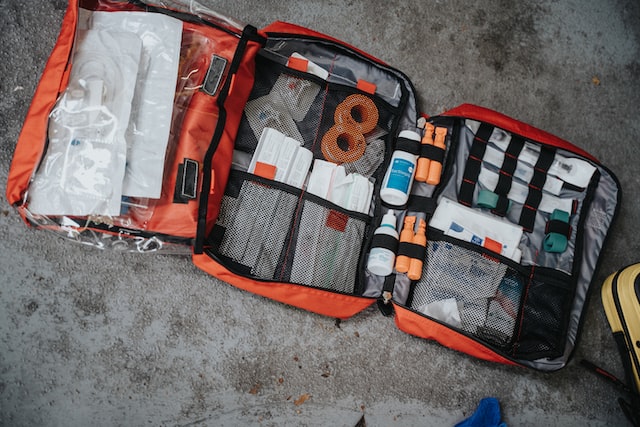- What Conditions Can Be Addressed by a Psychiatric Service Dog?
- Psychiatric Service Dog Tasks
- Reminding to Take Medication
- Can You Train Your Pet Dog to Become a Psychiatric Service Dog?
- Public Access Rights of Psychiatric Service Dogs
- What Is the Difference Between Psychiatric Service Dogs (PSDs) and Emotional Support Animals (ESAs)?
- Should Psychiatric Service Dogs Be Registered?
- Psychiatric Service Dog Training
- Who Can Train a Psychiatric Service Dog?
- Can All Dogs Become Psychiatric Service Dogs?

Some types of service dogs such as guide dogs, hearing dogs, and mobility assistance dogs are trained to perform major everyday tasks for the benefit of people with physical disabilities. Other types of assistance animals like Psychiatric Service Dogs (PSDs) are specifically trained to help people with mental illnesses.
In today's article, we will take a closer look at these amazing companions!
What Conditions Can Be Addressed by a Psychiatric Service Dog?
Psychiatric Service Dogs can help individuals manage health conditions such as anxiety and panic attacks by relieving their symptoms. Among the conditions that can be addressed by a PSD are:
• Post-traumatic Stress Disorder (PTSD);
• Anxiety;
• Phobias;
• Depression;
• Obsessive-Compulsive Disorders (OCD);
• Epilepsy or other seizure-related disorders.

Psychiatric Service Dog Tasks
Psychiatric Service Dogs go through specialized training based on their handlers' medical condition and personal needs. You can find details about the most common tasks that a PSD can be trained to perform further down:
Assistance in a Medical Crisis
A Psychiatric Service Dog can be trained to perform the following tasks in a medical crisis:
- Retrieving medication from a specific location that he/she is taught to go to on command;
- Locating a purse with medication on command;
- Bringing the handler items they need such as a mobile phone;
- Getting help in case of emergency and escorting the emergency personnel to the handler’s location.
Treatment-Related Assistance
Other important tasks that a PSD can be trained to do for the benefit of their handler are:
- Waking the handler up if they are having a nightmare;
- Reminding the handler to take medication at a specific time of day.
Reducing Emotional Overload
Psychiatric Service Animals can be of great help to people feeling distressed and emotionally overwhelmed. Unlike Emotional Support Animals though, PSDs do specific work to assist a person deal with emotional overload. Some important PSD tasks in regard to this matter are:
- Giving a kiss (soothing a feeling of sadness or loneliness by licking the handler’s face);
- Calming an individual when they are anxious and irritable;
- Providing Deep Pressure Therapy during a panic attack;
- Repeatedly circling around the handler to help create a comfortable distance (crowd control).
Environmental Tasks
These types of tasks can include:
- Turning lights off/on;
- Putting curtains down (if the handler is light-sensitive);
- Opening a locked door from the inside on command.
Alerting to Anxiety
Alerting their handlers to an oncoming anxiety episode is among the most essential PSD tasks. Psychiatric Service Dogs learn to recognize certain behavioral cues or commands and respond to them.
This help the handler be aware that an episode will occur and take precautious, i.e. going to a safe place, lying on a bed, taking medication, contacting a family member for assistance, etc.
Reminding to Take Medication
Yes, service dogs can do that! They can be taught to exhibit certain behavior at the same of the day. Training usually starts with pairing the sound of an alarm with treats. Over time, you should start making the treats harder to access, so that your dog will have to do a specific task / show specific behavior to get the treat. Once the dog understands the concept, the sound of the alarm can be gradually faded out. After enough repetitions during the same time of the day, your dog will start exhibiting the trained behavior to get a reward.
Can You Train Your Pet Dog to Become a Psychiatric Service Dog?
Some of the tasks listed above may seem to be challenging. However, based on the dog's temperament and how much time and effort you invest in the training process, training might succeed! Many Psychiatric Service Dogs can be trained by the owner themselves. Of course, the assistance provided by a professional trainer through a training program will be helpful!
If you would like to train your pet dog as a Psychiatric Service Dog, you may need to consult with a licensed mental health provider first. This will help you discuss what PSD tasks you are likely to benefit from the most.
Public Access Rights of Psychiatric Service Dogs
There are no limitations on the size or the breed of the dogs that can become Psychiatric Service Dogs. These animals are considered medical equipment and must be granted access to all places open to using by the public.
According to federal laws, Psychiatric Service Dogs can:
• Accompany their owners into businesses even if they run a "no pets" policy;
• Live with their owners in traditional "no pet" housing;
• Fly in the cabin of an airplane free of charge.
It is important to note though that service dog regulations vary on a local level. Regulations in some countries are tolerant of owner/self-trained service animals. If you are based in such a country, e.g. the US, the UK, or the Netherlands, your owner/self-trained service dog will be provided with the same access rights as service animals trained by international organizations. Laws in other countries are rather strict and may require additional certification by an international organization or an accredited local school as proof of training.
What Is the Difference Between Psychiatric Service Dogs (PSDs) and Emotional Support Animals (ESAs)?
There is a main difference between both types of assistance animals. Unlike Emotional Support Animals, Psychiatric Service Dogs are trained to perform specific tasks that are directly related to a mental disability. Providing comfort and companionship is only a part of their job.
PSDs aid their handlers in accomplishing essential tasks that they would otherwise be incapable of completing alone. Moreover, a Psychiatric Service Dog must be able to recognize the vocal or not vocal cues of their handler and respond to them in a timely manner.
In contrast, Emotional Support Animals will be considered pets when in public, as they are not trained to perform specific tasks directly related to a mental disability. However, ESAs can also be of great help to their owners as they help reduce emotional overload. If you suffer from a mental disability but don’t need a dog to do specific work for you, you may benefit from an Emotional Support Animal.
The presence of our beloved pets can be a great source of emotional support and comfort. However, dealing with mental illnesses may require a dog to go through specialized Psychiatric Service Dog training, in order to effectively mitigate the symptoms of these disabilities.
Should Psychiatric Service Dogs Be Registered?
Psychiatric Service Dogs, as well as other types of service animals, are not required by law to be registered. Service animals won't be entitled to access public places, based on the fact only that they are registered. Be careful with websites, that offer service dog registration, but do not require relevant training.
Psychiatric Service Dog Training
You should always keep in mind that service animals must go through basic obedience training, and specialized service dog training, which varies based on the person's needs. Last but not least, service animals must show excellent manners while in public, which is why public manners are the third part of the training process.
PSDs must be able to ignore distractions in their surroundings and assist their handler in a timely manner. This is why you should never neglect the importance of proper training.
Who Can Train a Psychiatric Service Dog?
Based on laws in your country or area, you may be allowed to train your dog as a Psychiatric Service Dog. Countries/areas with strict regulations typically require service animals to be trained by a training organization or go through an assessment by an accredited school.
Can All Dogs Become Psychiatric Service Dogs?
There are no limitations on what types of dogs or breeds can be trained as service dogs. However, you may want to check if there are certain breeds that are banned in your country. In this case, you may need to follow a procedure to be allowed to raise a dog of that breed and respectively train them as a service animal.
Also, service animals must be friendly, people-oriented, calm, and trainable. Having said that, not all dogs have the right temperament for service dog work. It is essential that you opt for a pup, with whom you will be able to develop a strong bond, as it will be your most loyal companion.
It does not mean of course, that training will always be free of challenges. If you are persistent, patient, and caring for your dog, your efforts will pay off!












